Accuracy more vital than ever in dawn of AI
Yet, there is always more to do and areas of improvement to be worked on. Much of this involves keeping an eye on the feeling, on a more global scale, of the direction of journalism, news style, the increasing prevalence of fake news, and the role of AI in the media.
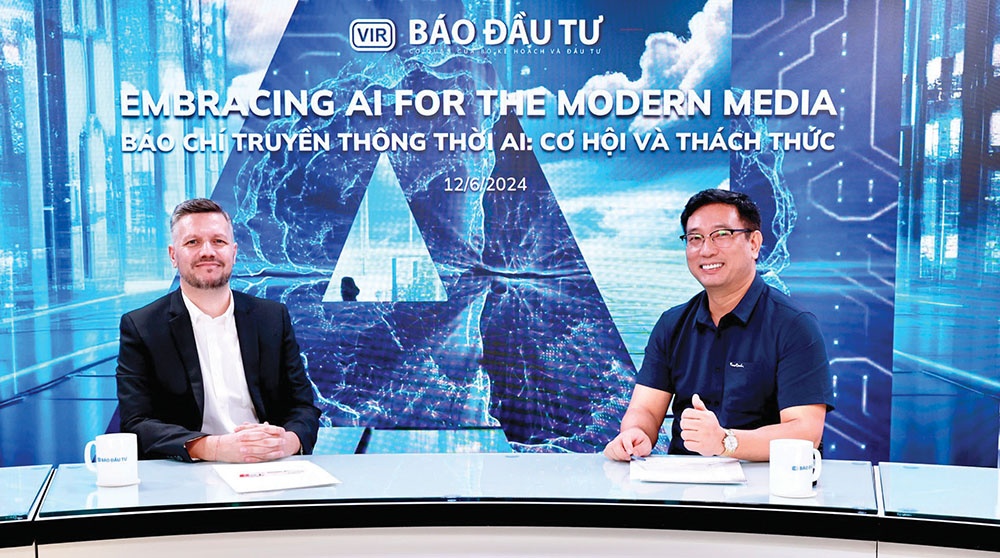 |
| The author (left) with Dr. Do Anh Duc, multimedia dean at the School of Journalism and Communication |
The 2024 Digital News Report from the Reuters Institute, published in June, noted that ongoing high-profile wars and pivotal elections mean accurate and independent journalism remains more important than ever. However, in many of the countries covered in the report’s survey, it found that the news media is being increasingly challenged by rising misinformation, low trust, and uncertain business environments.
The survey this year was also filled with examples of lay-offs, closures, and other cuts due to a combination of rising costs, falling advertising revenues, and sharp declines in traffic from social media.
Many social media sites, search engines, and video platforms are now explicitly de-prioritising hard news, while others have switched focus from publishers to creators, and pushing more fun or engaging formats – including video – to keep attention within their own platforms. VIR understands this point, which is why it has been striving to diversify its offerings in recent years.
This 13th edition of the Digital News Report, based on data from six continents and nearly 50 markets, also highlighted that these changes are not always evenly distributed. While it is struggling to remain relevant in general, in some parts of the world news media remains profitable, independent, and widely trusted. But even in these markets, there are challenges around the pace of change, the role of platforms, and how to adapt to a digital environment that is becoming more complex and fragmented each year.
Touching on this with a more regional aspect is a white paper published last month on AI and journalism in Southeast Asia by communications expert Chatrine Siswoyo and Raphael Lachkar, COO of ASEAN communications consultancy Vero.
The report, which surveyed 70 journalists from Vietnam, Thailand, Indonesia, and the Philippines on the issue of AI, said integration of related tools in the media raises valid concerns in the region.
There is tension surrounding preserving human judgment and the creativity of journalists amid automation. As AI takes on tasks traditionally performed by humans, reporters are sometimes encouraged to adapt and acquire new skill sets to remain relevant in the evolving news production and consumption landscape.
There are also debates on the ethical use of these tools. To what extent can journalists and editors use AI? And how transparent should the media be about AI’s involvement in the production process?
These are questions that VIR and its reporters are currently juggling with. While AI has been used to great effect in the design process, particularly for its special annual publications on sustainable development, foreign investment, and more, using AI more widely for individual articles will not only take time to implement, but must also be consistent across stories and across writers.
As a sub-editor, I have not yet encouraged the use of AI, nor am I in a position to enforce it. As someone who remembers the world pre-internet, I am currently skewed towards more traditional methods and would rather wade through the individual strengths and weaknesses of each reporter I work with, and help them improve depending on their level.
However, I recognise how useful something like generative AI could be for our work – but it cannot just be about making the actual job easier. As business and tech advisor Bernard Marr wrote for Forbes earlier this year, strong journalism involves coming up with original thoughts that people want to hear.
“While generative AI can write in a convincingly human way, ultimately, all it does is repurpose and restructure existing knowledge. Journalists will thrive in the AI age by honing their ability to uncover new facts, bring original thinking to issues and debates, and give it to their audiences in compelling, human ways,” Marr wrote.
As the Vero report implies, there is a desire among journalists in Vietnam to be educated about AI. They are eager to understand its functions, as they recognise its power to streamline workflow and improve quality. Gaining a more profound knowledge of the tech, both its capabilities and limitations, could enable reporters to harness these tools strategically.
But it also noted that a positive perception of AI is linked to how much and how well one uses it. If journalists are not adequately trained and do not have sufficient knowledge, they will be less inclined to use AI or pursue further training. This creates a feedback loop where familiarity and positive engagement with AI reinforce each other, the report said.
Nevertheless, such training could help journalists in Southeast Asia with fact-checking information, as using natural language processing tools can analyse the sentiment, tone, and credibility of statements made by various sources of information.
Additionally, several organisations in the region have been holding dedicated training programmes to delve into the multifaceted aspects of AI in journalism, and this is perhaps something Vietnam can look at further. The Malaysian government has also initiated AI training for media practitioners as part of a 2024 sandbox initiative.
While this could be crucial in equipping journalists with the skills and knowledge necessary to navigate AI technologies, I always believe that keeping things simple is the priority, and outlets like VIR should work on its AI capability in the background first, until it feels confident in utilising it successfully in a more widespread manner.
Meanwhile, reporters should focus on delivering new information, quotes, and statistics concisely via traditional means, and only take on AI when they fully grasp it.
 | New AI offerings pose more questions The AI explosion is continuing at pace with new offerings from the biggest tech groups in the world, but ethical concerns and investing considerations are taking up more focus as industries like the media and manufacturing adjust their priorities. |
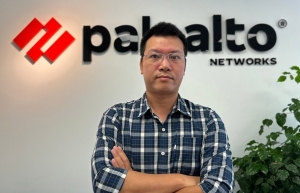 | AI-powered solutions to be adequate response to threats Toying around with the latest generative AI tools has been entertaining for many. Yet, AI has long transcended personal use, profoundly reshaping organisational and business activities. |
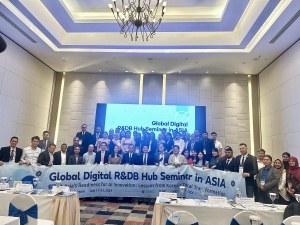 | Asia’s readiness for AI innovation: Lessons from South Korea’s digital transformation A landmark event to foster collaboration in AI research and development business across Asia by bringing together leading experts, scholars, government officials, and innovative communitie was held on July 11-12 in Hanoi. |
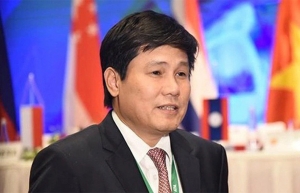 | Fresh opportunities from AI in Vietnamese aviation In the earlier industrial revolutions, technology and equipment increasingly replaced human manual labour. In Industry 4.0, especially with breakthrough technologies such as the cloud, big data, the Internet of Things, and AI, there is an expectation that machines and tech will replace human labour. |
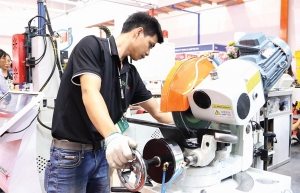 | AI transforming Vietnam’s businesses for the better While AI is a key in the process of innovation and accelerating economic development, it needs support from many sides to strengthen the workforce and related startups. |
(*)Ray McRobbie, sub-editor Vietnam Investment Review
What the stars mean:
★ Poor ★ ★ Promising ★★★ Good ★★★★ Very good ★★★★★ Exceptional
Related Contents
Latest News
More News
- Tet event in Japan celebrates success of 14th National Party Congress (January 25, 2026 | 10:04)
- 14th National Party Congress wraps up with success (January 25, 2026 | 09:49)
- Congratulations from VFF Central Committee's int’l partners to 14th National Party Congress (January 25, 2026 | 09:46)
- List of newly-elected members of 14th Political Bureau announced (January 23, 2026 | 16:27)
- 14th Party Central Committee unanimously elects To Lam as General Secretary (January 23, 2026 | 16:22)
- List of members of 14th Party Central Committee announced (January 23, 2026 | 09:12)
- Highlights of fourth working day of 14th National Party Congress (January 23, 2026 | 09:06)
- Press provides timely, accurate coverage of 14th National Party Congress (January 22, 2026 | 09:49)
- Press release on second working day of 14th National Party Congress (January 22, 2026 | 09:19)
- Minister sets out key directions to promote intrinsic strength of Vietnamese culture (January 22, 2026 | 09:16)

 Tag:
Tag:



















 Mobile Version
Mobile Version